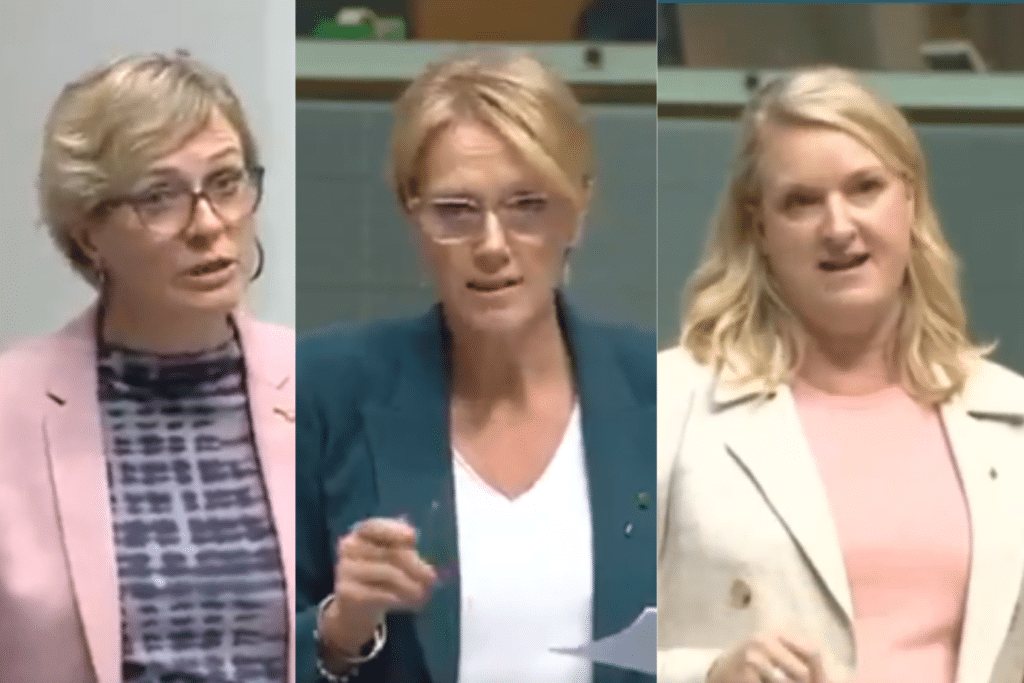The federal government has rushed legislation through the lower house that would force hundreds of non-citizens to facilitate their own deportation.
In much less than 24 hours, politicians have been asked to consider what many refugee advocates are saying is a “profound change” to migration laws that breaches human rights obligations.
The bill gives the Minister for Immigration the power to direct a non-citizen who is due to be deported “to do specified things necessary to facilitate their removal”, or risk a mandatory minimum sentence of one year in prison or up to five years.
The bill also creates a power for the government to designate another country as a “removal concern country”. This will impose a bar on new visa applications from non-citizens outside Australia who are nationals of a country that does not accept removals from Australia. The power could affect applicants hoping to leave countries such as Russia, Iran, Iraq and South Sudan.
Before question time on Tuesday, the Albanese government combined with the Coalition in the House of Representatives to approve the new powers for the immigration minister, Andrew Giles.
Giles argues the bill is consistent with Australia’s human rights obligations in most respects but to the extent it limits human rights it does so “in order to maintain the integrity of the migration system”.
“What we’re doing with … this important piece of legislation is to fill a very significant loophole, that a small cohort of people who have no basis upon which to remain in Australia are refusing to cooperate with efforts to affect their removal,” said Giles.
Following introduction of the legislation, Independents, minor parties and national organisations, have released scathing warnings of the consequences this could have on real people’s lives.
The Human Rights Law Centre has warned that if this legislation is passed into law, it “will confront people fleeing persecution, torture and death with a perilous choice: return to a place where they may be harmed or killed, or be detained in prison for refusing to comply with removal”.
“The Asylum Seeker Resource Centre, Human Rights Law Centre and Democracy in Colour urge the Albanese government to abandon the Bill and instead focus on building durable, lasting mechanisms to review immigration detention and release people safely into the community, where they can begin to rebuild their lives.”
Independent MP Zoe Daniel opposed the legislation, reminding elected officials that “this is not some esoteric idea”.
“If we make a mistake here, people may be sent back to countries and murdered. And if we rush this through, and that happens, that’s on us,” she said.
Independent MP Zali Steggall called the rushed legislation “a parody of what democratic debate should look like”.
“This is a legislation on which we were briefed by the minister only a couple of hours ago that has numerous questions and details in respect to which there was no answer,” she said.
“And yet, you are here, asking this place to fast track it.”
Speaking to the human rights violations of this legislation, Independent MP Kylea Tink said: “Let’s be really clear, I don’t see how the legislation being discussed today can in any way meet our international human rights obligations.”
“Australia is a signatory to a number of international human rights treaties. Those treaties include the right to seek asylum. Those treaties include that all asylum seekers should be treated equally under the law.”
Amnesty International Australia has said this rushed migration amendment bill creates a spectre of Trump’s “Muslim Ban” policy in the US with its “undeniable discrimination based on race, religion, and national origin, as well as the potential devastating impacts of family separation”.
The human rights organisation has also emphasised this bill risks putting Australia “in breach of its international obligations”.



